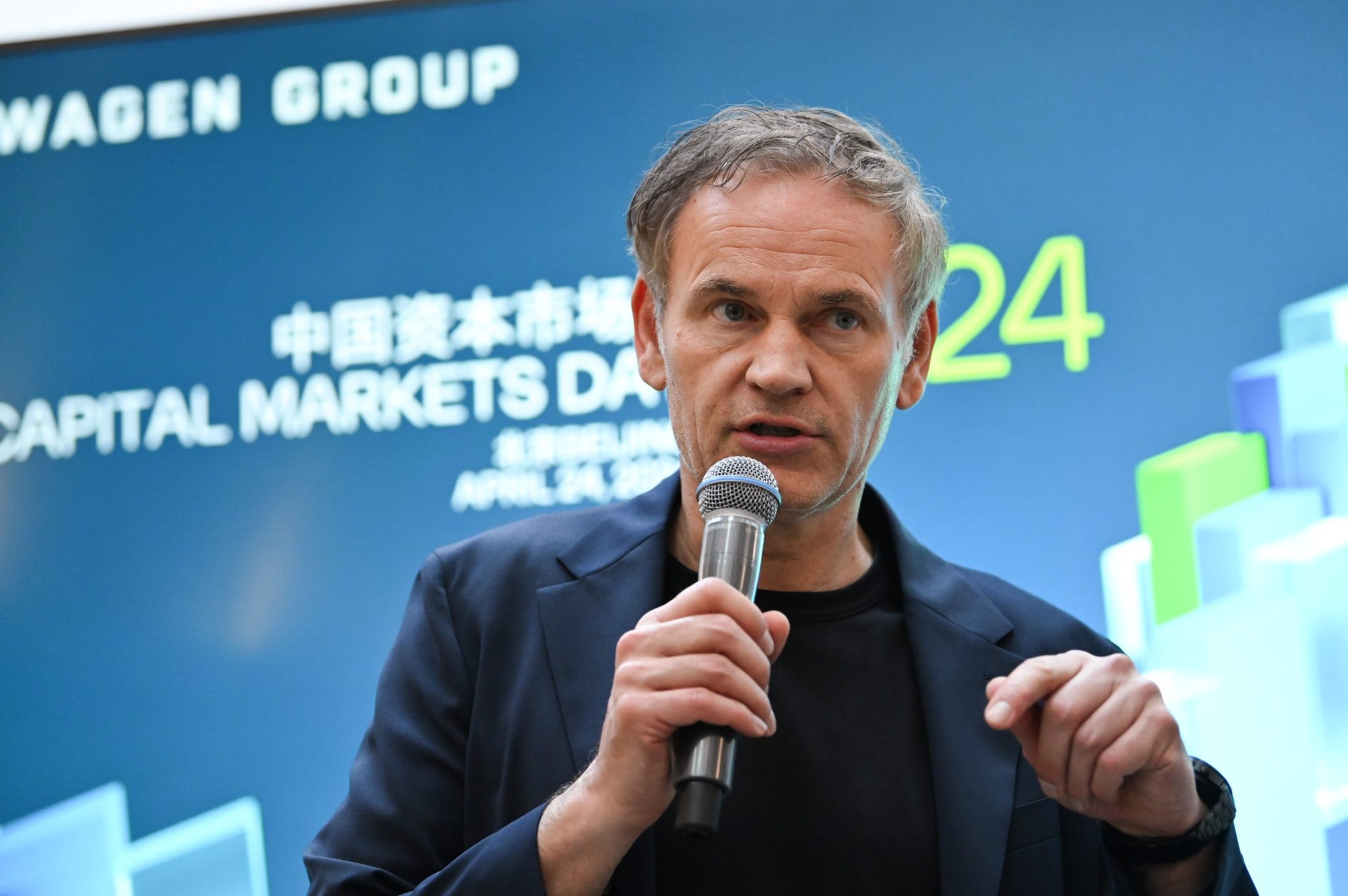
Volkswagen AG’s second profit warning in three months makes one thing clear: Europe’s biggest automaker is in decline.
The German manufacturer on Friday slashed expectations for revenue, profit and cash flow due to waning demand for its cars. The company now expects to deliver fewer vehicles this year than in 2023 — its fourth annual sales slump in five years.
The warning underscores the extent of the crisis at Volkswagen, which has bungled a transition to electric vehicles and lost relevance in China, where its VW, Audi and Porsche brands are hemorrhaging market share. In Europe, Chief Executive Officer Oliver Blume faces new entrants including China’s BYD Co. as well as a conflict with unions over possible job cuts and unprecedented plant closures.
VW’s stock declined as much as 2% in Frankfurt, taking this year’s drop to 15%. Shares of Stellantis NV and Aston Martin Lagonda Global Holdings Plc also fell after the carmakers cut their forecasts on Monday, adding to the pain in the European auto industry.
All three major German carmakers — Volkswagen, Mercedes-Benz Group AG and BMW AG — have now warned about their profit this month. The slump in China and rising competition from EV makers including Tesla Inc. are forcing carmakers to discount, crimping margins. Declining consumer confidence is sapping demand for combustion-engine cars.
Volkswagen had dominated sales of gasoline cars in China, but failed to keep pace with the rapid shift to EVs in the biggest auto market. There, local rivals like BYD have seized the upper hand with innovative and affordable models. To try to turn things around, VW is closing plants, striking partnerships with local manufacturers including Xpeng Inc. and promoting a new EV brand catering to younger buyers.
VW-owned premium brands, including Audi and Porsche, have been the carmaker’s biggest source of profit in recent years, but they’ve started to struggle in the industry’s key market. The 911 maker’s sales in China slumped 33% in the first half as luxury buyers held off purchases.
“Volkswagen’s scale benefits in China have likely peaked as local customers start to favor domestic brands,” said Matthias Schmidt, an independent auto analyst based near Hamburg, adding that the “brutal” price war there is hurting VW’s bottom line.
While China’s shift to EVs is in full swing, Europe is lagging behind. Sales have slowed after countries including Germany and Sweden reduced or removed incentives, catching VW and European peers Stellantis and Renault SA off guard. Chinese EV manufacturers including BYD and MG — owned by VW-partner SAIC Motor Corp. — have jumped into the breach with low-cost offerings.
VW’s higher-volume operations are in even worse shape. The namesake passenger-car marque and the commercial vehicles unit are performing below expectations, and brands such as Skoda and Seat are threatened by a “deterioration in the macroeconomic environment,” the company said.
Volkswagen on Friday warned that global deliveries will drop to around 9 million units this year, from 9.24 million in 2023. It had previously forecast a 3% increase. The manufacturer now sees an annual operating margin of 5.6% — down from a prediction of as much as 7% in July, when it previously lowered its expectations. Net cash flow in the automotive division is expected to be less than half the level the company had foreseen under a best-case scenario.
Blume has pledged to make Volkswagen more competitive by cutting costs. He’s scrapped decades-long job security pledges in Germany and is considering shuttering factories in the country for the first time. VW executives have flagged about two car plants’ worth of excess capacity, putting them on course for a protracted conflict with powerful labor groups.
“The deterioration in performance could accelerate decisions on restructuring, with the VW brand in particular continuing to drag cash conversion to new lows, potentially creating an existential risk for the group,” Jefferies analysts led by Philippe Houchois said in a note.
Credit: Source link












